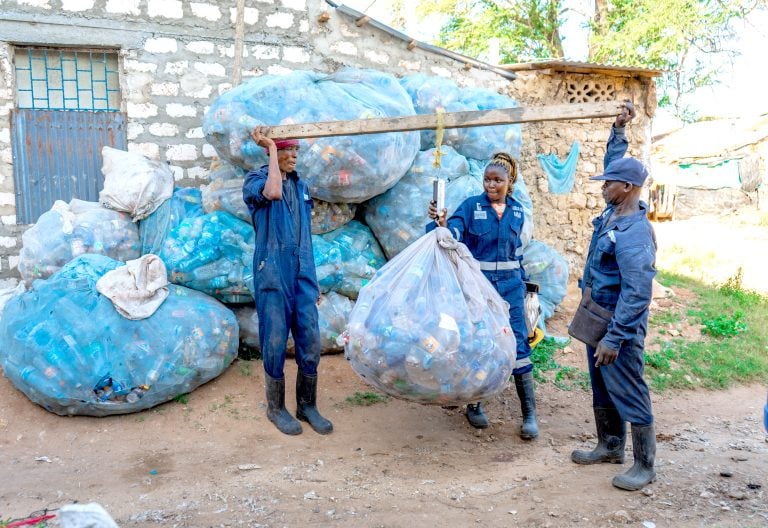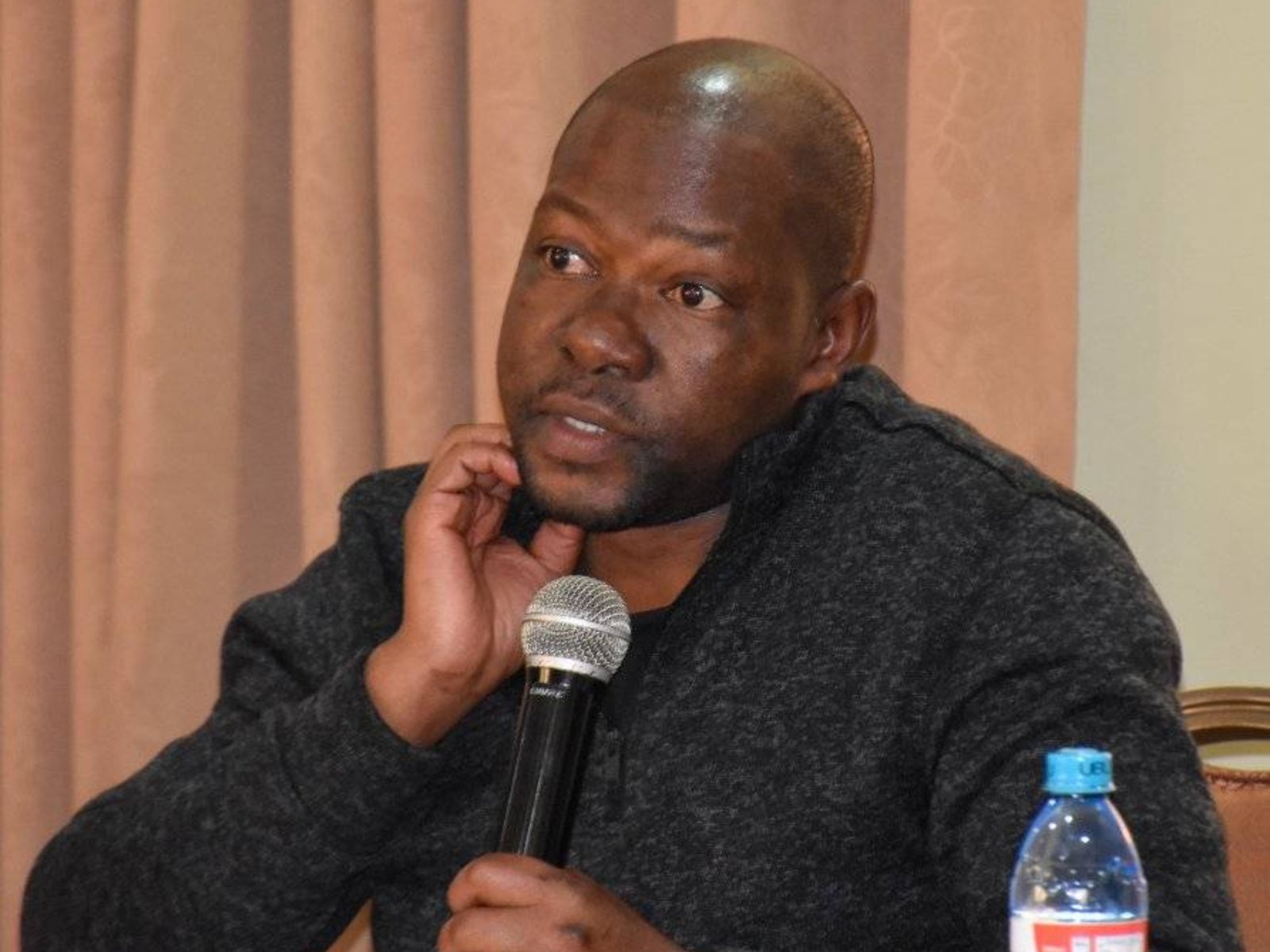How youth are turning waste into cash

For years, waste collectors in Mombasa toiled with little recognition, limited earnings and virtually no access to sustainable markets.
But this has changed, fuelled by community innovation, digital technology and a growing circular economy movement on Kenya’s coast.
At the heart of this transformation is the Pwani Circular Economy Association (PCEA), a grassroots-led initiative working in partnership with WWF-Kenya to reimagine how plastic waste is managed, valued, and turned into economic opportunity.
“PCEA was created to bring together waste sector stakeholders, ensuring they operate within legal frameworks such as the Sustainable Waste Management Act while securing better market access, policy representation, and financial sustainability,” says Susan Omingo, PCEA National chairperson.
According to her, the goal of this initiative is to formalise the sector further, improve income security, and scale the innovations across Kenya’s coastal counties.
So far, more than 2,500 waste workers are now organised under PCEA, with over 700 collectors formally registered, trained, and operating in safer, regulated environments with access to personal protective equipment.
Changed lives
“We used to collect plastics blindly, mixing everything and selling it all at a throwaway price,” recalls Jason Wanyonyi, Chairperson of the Kipevu Waste Managers, a PCEA member group.
“Now, we understand the business. We know how to sort, how to price, and most importantly, how to sell directly to better-paying buyers.”
This change has come largely through technology-driven platforms introduced by PCEA. Chief among them is TakaConnect, a mobile-based application that links waste collectors to buyers, recyclers, and real-time price updates. The result? Waste pickers can now negotiate fairer deals and earn more from sorted plastics.
“Our members are now making better income compared to the past. We can access new markets, and that has really uplifted our livelihoods,” Jason adds.
Another game-changer is the Elewa WhatsApp platform, a digital learning tool that helps collectors identify high-value plastics, understand recycling best practices, and manage waste enterprises more efficiently.
“Elewa taught us the different types of plastics and their values,” says Jason.
“Before, people would just sell everything mixed together. Now, they sort and earn more. It’s not just about collection anymore; it’s a business,” he adds.
According to Alex Kubasu, programme coordinator, green economy and policy at WWF, because of this partnership in Mombasa’s six sub-counties, 57 sorting stations and 13 buyback centres have been established.
Over 7,800 metric tonnes of plastic have been sorted and sold, and another 2,152.94 metric tonnes are directly collected by waste pickers.
Major industrial partners like Jil Industries and Mr Green Africa have processed a combined 37,861 metric tonnes of waste, proving the profitability and scalability of plastic recycling in Kenya.
Jil Industries has gone a step further. The company now manufactures durable water tanks made from 100 per cent recycled plastic, fully certified by the Kenya Bureau of Standards (Kebs).
This innovation not only keeps plastic out of landfills but also creates local jobs and sustainable products.
“Initially, we focused on processing recycled plastics into raw materials for resale. However, through the support from WWF, the company installed a state-of-the-art recycling line, developed a closed-loop production model, and secured regulatory approval, with certification from the Kenya Bureau of Standards for 1,050L, 2,500L and 5,000L tanks,” says Arvind Bhudia, Jil Industries founder.
Waste recycling
According to Kubasu, in some areas like Mkoroshoni, the impact of the initiative is visible. Once plagued by pollution and disease, the village is now a model of community-led recycling.
Youth groups collect and sort over five tonnes of plastic per month, turning waste into wealth and reclaiming public health.
Apart from improved market access and business growth, PCEA’s influence is also driving policy. The association has facilitated direct engagement between waste managers and local/national authorities, as well as other environmental and sustainability organisations.
This has led to more integrated efforts in waste management and governance, policy advocacy, and implementing sustainable practices. County governments have also started to revise waste segregation policies and align with the global plastic smart cities initiative.
They are also partnering with the County Government and the private sector to pilot the establishment of community-led recycling centres in all sub-counties, to provide a sustainable solution for waste sorting and resource recovery.
“We have seen what works. Now we want to reach more communities, especially women and youth, who are eager to join this green economy. We are also leveraging digital tracking systems to track and measure the plastic recovery rates, enabling data-driven decision-making to improve waste management efficiency,” says Omingo.
According to Omingo, the initiative has led to safer working environments, improved incomes, and economic resilience.
By enhancing market access and fair pricing, waste collectors are now more empowered to sustain and expand their businesses.
The formalisation of the sector has created structured employment opportunities, reducing exploitation and increasing recognition of waste management as a viable economic activity.
Influence waste policies
Furthermore, Mombasa’s integration of Responsible Business Conduct (RBC) within Extended Producer Responsibility (EPR) policies has established a sustainable framework for ethical waste management, ensuring continued industry growth and scalability while fostering a more inclusive and circular economy.
“While this project has advanced RBC adoption and ethical labour standards, many SMEs still struggle with implementation due to financial constraints and weak enforcement. Despite these challenges, the project has laid a strong foundation for a fairer, safer, and more financially sustainable plastic waste sector,” Omingo said.
However, ongoing collaboration is crucial to ensure all workers, regardless of company size, benefit from ethical labour practices, safety protections, and economic opportunities,” he added.
Omingo reveals that they have also been raising awareness and educating the public about the importance of sustainable waste management.
This has promoted behaviour change by educating and engaging with schools, communities, and businesses, fostering a culture of environmental responsibility and stewardship, on waste segregation, recycling and sustainable consumption.
“Our initiatives extend beyond traditional waste collection, ensuring systemic change across the entire waste value chain. By empowering communities and businesses to participate in a circular economy, we are paving the way for a waste-free, circular future in Coastal Kenya,” she says.
“Governance is the primary limitation, and we have to influence those governments in the face of increasing threats to these ecosystems”.















